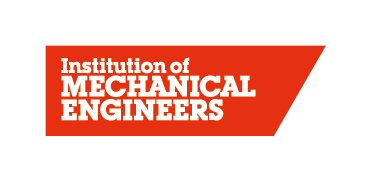Overview
Our Advanced Engineering Design MSc degree is described as ‘the doorway to industry’. It is for high-calibre, ambitious engineering or science graduates who wish to gain expertise in developing complex, multidisciplinary engineering design.
The focus of the course is to provide you with advanced theory and skills to give you the essential expert knowledge needed for a career as an advanced designer, a design team leader or a researcher in innovative engineering design working in a computer assisted environment.
You will learn how to design products requiring embedded intelligence and comprehensive engineering analysis, and will be taught by a team of highly regarded academics who will give you a thorough grounding in engineering design.
Throughout your postgraduate engineering degree, you’ll have access to well-equipped design studios and computers for your exclusive use, and will benefit from the latest computer aided engineering software packages.
The Design Experience project gives you experience of the whole design process in an industrial environment – from initial concept to final design and manufacture, and presentations, seminars, discussions and guest speakers from industry make this a special learning experience.
Part of your course will also involve group projects, furthering your ability to work in a team. Recent group projects have included the design of electric vehicles, and the design of smart jigs and fixtures.
We run regular industry liaison events and this is your chance not only to showcase your innovative engineering design projects, but also network with key engineering and technology professionals.
Brunel’s Advanced Engineering Design MSc degree is accredited by the Institution of Mechanical Engineers (IMechE). This means your degree will put you on course to gain Chartered Engineer (CEng) status in the UK. It can be studied either full-time over one year, or part-time over two years. You can start the full-time course in either September or January.


You can explore our campus and facilities for yourself by taking our virtual tour.
Course content
As a full-time student, you will study four modules in the first term, and four in the second. You will then spend four months working on your dissertation which could be carried out in industry.
If you’re studying part-time, you’ll take three modules in the first year and four modules in the second year when you’ll also work on your dissertation project.
Compulsory
- Computer Aided Engineering 1This module aims to give the students the knowledge to model the entities, points, edges, surfaces and solids for CAE and the skill to create the computer model of a part or assembly using a contemporary CAE software package (CATIA), and to educate the students in the theory and application of Mechanism Synthesis and Analysis and to equip the students with the skill of modelling mechanisms using the MATLAB and Simulink software packages.
- Computer Aided Engineering 2This module aims to equip the students with the knowledge and skills to carry out appropriate linear, non-linear static and dynamic analyses needed to solve design problems using FEA tools, to equip the students the knowledge and skill needed to visualise and interpret results from various analyses using commercial CAE packages, and to teach the necessary theory to correctly formulate a problem, carry out the analysis and interpret the results.
- Design ExperienceThis module aims to give the students the experience in the design of multidisciplinary product or systems, to equip the student with the skills in project planning, management and execution as a team member, and to provide students with the global picture of designing a finished marketable product encapsulating mechanical, electrical, electronic and control logics.
- Manufacturing Systems, Design and EconomicsThis module aims to meet the growing need of manufacturing industry for graduates with very high levels of knowledge and skills in advanced manufacturing processes, design of manufacturing systems and management of production facilities, including the understanding of materials and their properties in relation to production processes, the design of products for automated manufacture, advanced, automated production and assembly systems, and advanced and micro manufacturing and production processes.
- Sustainable Design and ManufactureThis module aims to provide students with methods for analysing sustainability in design, quantifying the quality parameters, calculating and assigning appropriate tolerances, analysing the manufacturing operations for achieving the required quality targets. The emphasis will be on the link between design information and manufacturing operations to produce products and propose operations that reduce the environmental impact of manufacturing.
- Dissertation ProjectThis assignments aims to provide students with an opportunity to plan and execute a major professional project leading to a dissertation, to develop their communications, time management, research and development skills, to articulate their knowledge gained in their undergraduate programme and during the earlier parts of the MSc programme and to work independently in consultation with their academic supervisor.
Optional
- Human Factors in DesignThis module aims to develop an understanding of the physical, perceptual, cognitive and emotional characteristics of humans, to use the main qualitative and analytical methods of human centred design, to illustrate the practical application of human centred design techniques by means of examples chosen from the product, system and service industries, and to develop skills in multi-disciplinary thinking and multi-disciplinary design practice.
- Design of Mechatronic SystemsThe main aims of this module are to teach the students how to integrate mechanical, electronic and control functions, to critically analyse and use mechatronic design concepts, to apply multiple discipline expertise in an integrating mechatronic process, and to use a contemporary software to simulate power electronic circuits.
- Robotics and Manufacturing AutomationThis module aims to provide an understanding and critical awareness to designing and controlling modern automated manufacturing systems, and employs a systems approach in doing so. The module provides an exposure to a variety of industrial and factory automation practices and also an understanding in selecting appropriate automation and control methods for the equipment or process at hand.
- Advanced Measurement Systems and Data AnalysisThis module aims to help students to gain an in-depth knowledge of basic measurement theory, operating principle of modern measurement techniques, capabilities of practical measuring machines and advanced data analysis.
- Project Management
This module aims to give students a comprehensive understanding and critical awareness of the latest advanced techniques and strategies for project management, including management tools, management and reporting methods and team building.
This course can be studied undefined undefined, starting in undefined.
Please note that all modules are subject to change.
Read more about the structure of postgraduate degrees at Brunel
Careers and your future
Our graduates have described the course as ‘the doorway to industry’. They have progressed to careers within industries including aerospace, automotive, transport, the MoD, the government, and the manufacturing sector.
You will have the chance to get a CAD certificate for professional use of a CAD system awarded by PTC University.
On the course you’ll develop the advanced knowledge, skills and attitudes demanded by top engineering organisations such as Airbus, Rolls-Royce, BAE Systems, Volkswagen Group and BP; and by manufacturers such as Caterpillar and engineering consultancies such as Anderson Consulting.
UK entry requirements
A 2:2 UK Honours degree or equivalent internationally recognised qualification in engineering, or an appropriate science (Mechanical Engineering, Civil Engineering, Chemical Engineering, Electrical/Electronic Engineering, Bio-Engineering) and technology subject areas.
Please note that we do not require a Design portfolio as part of the application for this programme. In the unlikely event that we do need this we will contact you.
EU and International entry requirements
If you require a Tier 4 visa to study in the UK, you must prove knowledge of the English language so that we can issue you a Certificate of Acceptance for Study (CAS). To do this, you will need an IELTS for UKVI or Trinity SELT test pass gained from a test centre approved by UK Visas and Immigration (UKVI) and on the Secure English Language Testing (SELT) list. This must have been taken and passed within two years from the date the CAS is made.
English language requirements
- IELTS: 6 (min 5.5 in all areas)
- Pearson: 59 (59 in all sub scores)
- BrunELT: 58% (min 55% in all areas)
- TOEFL: 77 (min R18, L17, S20, W17)
You can find out more about the qualifications we accept on our English Language Requirements page.
Should you wish to take a pre-sessional English course to improve your English prior to starting your degree course, you must sit the test at an approved SELT provider for the same reason. We offer our own BrunELT English test and have pre-sessional English language courses for students who do not meet requirements or who wish to improve their English. You can find out more information on English courses and test options through our Brunel Language Centre.
Please check our Admissions pages for more information on other factors we use to assess applicants. This information is for guidance only and each application is assessed on a case-by-case basis. Entry requirements are subject to review, and may change.
Fees and funding
2026/27 entry
UK
£14,435 full-time
£7,215 part-time
International
£24,795 full-time
£12,395 part-time
More information on any additional course-related costs.
Fees quoted are per year and are subject to an annual increase.
See our fees and funding page for full details of postgraduate scholarships available to Brunel applicants.
Scholarships and bursaries
Teaching and learning
To ensure you receive the maximum support and have the greatest opportunity to reach your full potential the expectation is that you attend in-person all teaching activities including examinations that are scheduled on campus. This will be the majority of all activities. However, where for pedagogical reasons alternative methods of delivery are used for activities you'll be notified and expected to engage with the activity at the time of delivery.
Laboratory Support
For modules with practical learning content, these will be delivered in-person on campus in the laboratories.
Assessment
Traditional examinations will be taken in-person on campus.
Access to specialist software
You'll have access to relevant engineering software on campus. You're also able to install software on your own personal laptop and connect to the Brunel License server through a VPN connection. This provides continued access to all services.
Access to a laptop or desktop PC is required for joining online activities, completing coursework and digital exams, and a minimum specification can be found here.
We have computers available across campus for your use and laptop loan schemes to support you through your studies. You can find out more here.
Our staff have national and international reputations for their research, publications and applied work. This means that your education will be at the forefront of scholarship and practice, covering the most up-to-date industry knowledge.
The course is delivered through lectures, seminars, tutorials, laboratory classes, self-study, and individual and group project work.
Should you need any non-academic support during your time at Brunel, the Student Support and Welfare Team are here to help.
Assessment and feedback
You’ll be assessed on your written assignments, project reports, presentations, examinations and a major dissertation project.
Read our guide on how to avoid plagiarism in your assessments at Brunel.



